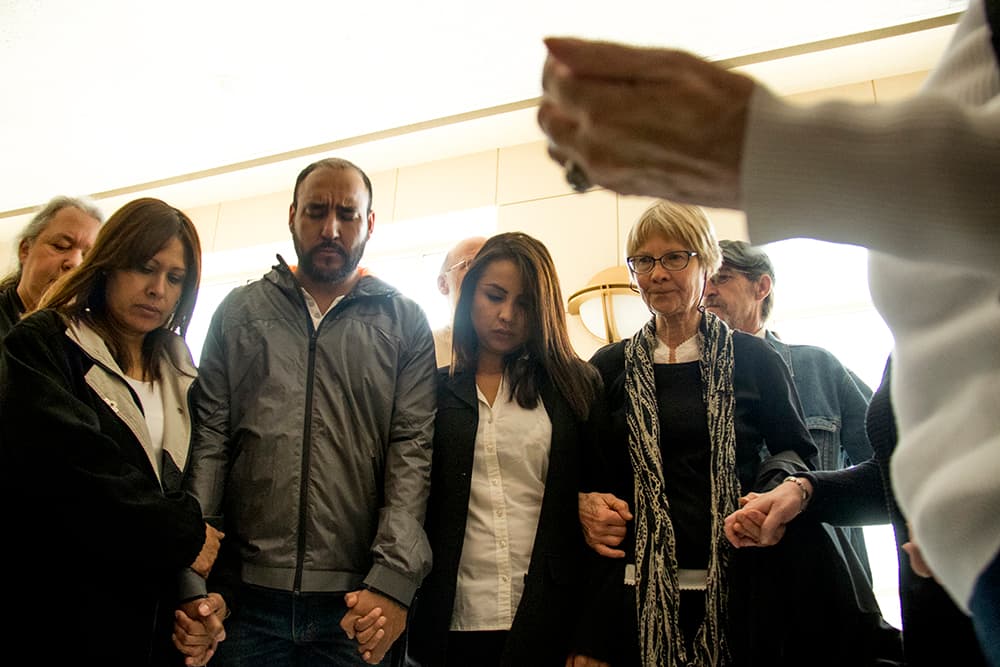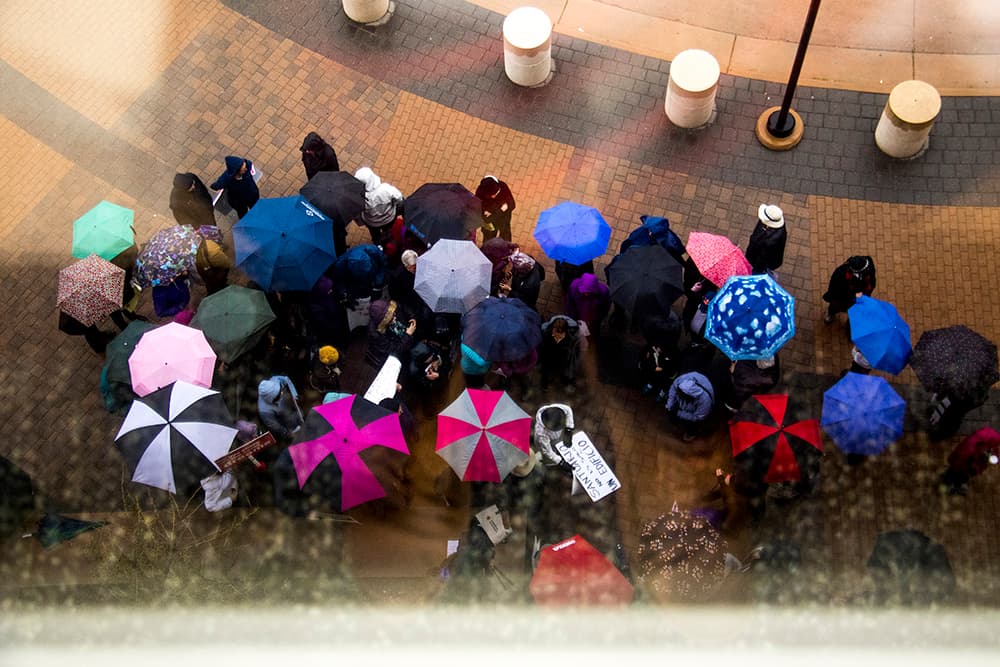
Ingrid Encalada Latorre, who has lived for nearly six months in a Quaker church to avoid deportation authorities, won a crucial and risky victory today in her legal fight to stay in the United States.
Latorre went to court today in an attempt to clean up her record, a step toward staying in the country. She ran the risk of being detained by federal immigration officials, who have previously been seen in Denver courts.
Latorre's troubles stem in part from her previous felony conviction of identity theft. She had purchased falsified immigration papers, but did not realize they were stolen, she said. She pleaded guilty to the felony on the advice of an attorney, not realizing it would make her a target for deportation.
Now she's trying to get that conviction reduced to a misdemeanor, which could spare her from deportation. Today, she got a win, but she's not done fighting for her record yet.
That's because -- and this is complicated -- she already tried to fix the record last year, when she tried to argue in court that her original attorney was incompetent. Neither of her new attorneys showed up, and so Latorre lost that attempt.
So, today was a second layer of what's called post-conviction proceedings. She was out to prove that her second set of attorneys had failed in their duties as well.
It's a really unusual situation -- but Colorado First Judicial District Judge Dennis Hall ruled in Latorre's favor today.
What this amounts to is the possibility that Latorre can go back to arguing that her lawyer mishandled the initial identity theft hearing. If she wins that argument, she potentially can re-try her conviction. She hopes she'll at least be downgraded to a misdemeanor, which might mean federal immigration officials deprioritize her for deportation.

The hearing today consisted of attorneys cross-examining other attorneys on the letter of the law.
Patrick J. Mulligan, a lawyer who has worked on more than 80 post-conviction cases, told Denverite it's "highly unusual" to see a second layer of incompetence arguments make it to a judge.
Still, Judge Hall was receptive -- particularly because one of the two attorneys who failed to show up at Latorre's first post-conviction hearing also failed to show up today.
Hall said he was "dumbfounded" by the attorney's apparent inability to appear. After making his ruling, he requested the absent attorney have a contempt order filed against him.

So, what's next?
Latorre will work to prove the attorney in her identity theft charge misinformed her, which would nullify her felony charge and allow her to re-try that case.
Attorney Jeff Joseph, who represents Latorre in immigration court, says that's the crux of his plan to keep her from being deported.
Undocumented residents generally can apply for a "cancellation of removal," which stops deportation proceedings. But there are certain charges, like felony identity theft, that makes people ineligible to apply for that relief. If Latorre can get her felony dropped, she'll be able to ask for a cancellation.
And Joseph says she has a really strong case to be granted that cancellation. She has been in the country for more than 10 years, she has "good moral character," and she has two young citizen kids who would suffer "exceptional" harm if she were to return to her native Peru.
The main thing in her way is a disqualifying charge, and today she's one step closer to dealing with it.

Beyond this shred of hope, Joseph says the hardship she's endured dealing with incapable legal counsel in at least one proven case might sway her case in the eyes of the court.
But this bears reiterating: Overturning her felony means she can ask for a cancellation of removal. It does not mean she'll necessarily be off of U.S. Immigration and Customs Enforcement (ICE)'s radar.
A spokesperson for ICE told Denverite that downgrading a charge from a felony to misdemeanor charge could have an effect on a person's deportation priority, but the agency takes these things on a case-by-case basis. He could not comment on the specifics of Latorre's situation.














